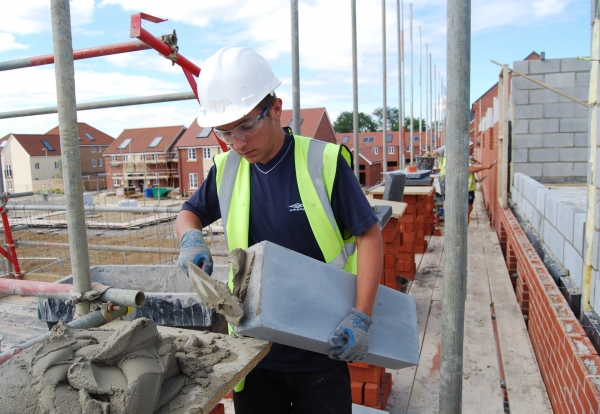As increased build and finance costs bite, a third of housing associations in the UK are reporting a deficit of between 11-25% on individual development schemes.
According to a new in-depth study, registered housing providers are now reining in affordable homes programmes, which across the UK will be hacked back by 22% in short term.
In London, the G15 – which represents the capital’s largest housing associations – confirmed that its members are reducing development programmes by as much as a third.
Mark Hattersley, chief financial officer at Clarion, said: “We could see a challenging market emerging about 18 months ago, so we started moderating our pipeline.
“We still have a long-term ambition to build 3,200 homes a year, but we’re aiming more towards 2,000 until the market recovers.”
Waqar Ahmed, finance director at L&Q, said “We were building around 5-6,000 homes a year based on the last couple of years’accounts, but going forward, we don’t predict to be building more than 3,000 homes a year over the next five years.”
The findings of the six-month study by specialist real estate lender Octopus Real Estate found the affordable sector is at a crossroads, faced with the choice of investing in improving existing homes and decarbonising – or building new ones.
As it becomes harder to make affordable housing development projects financially viable, Octopus’ research found housing associations have mostly chosen to focus on improving their current housing stock at the expense of uncommitted projects.
On the upside, overall spend on repairs and maintenance has jumped from £5bn in 2018 to £6.5bn in 2022.
Professor Alex Lord, Lever Chair of Town and Regional Planning at the University of Liverpool, said: “There is a considerable gap between aspirations and what registered providers expect to materialise over the coming years.
“This timely and important intervention from Octopus presents a clear case that we need to think again about stimulating the delivery of new affordable homes.”
The research also sought to gauge how the industry is currently working with alternative partners to deliver homes, such as for-profits or equity partners.
With lower grant funding levels and more expensive debt, around a half of social landlords now say they are more likely to work with for-profit registered providers or equity partners compared with just 12 months ago.
Ed Clough, managing director, Octopus Real Estate, added: “We believe that equity partnerships represent the next wave of innovation in the sector, comparable to the 1980s when registered providers were given access to the debt capital markets.
“While some may be sceptical about this new way of working, ultimately, we hope that registered providers can unite around our common goal: building affordable homes for the people who need them.”
















































 (300 x 250 px).jpg)





